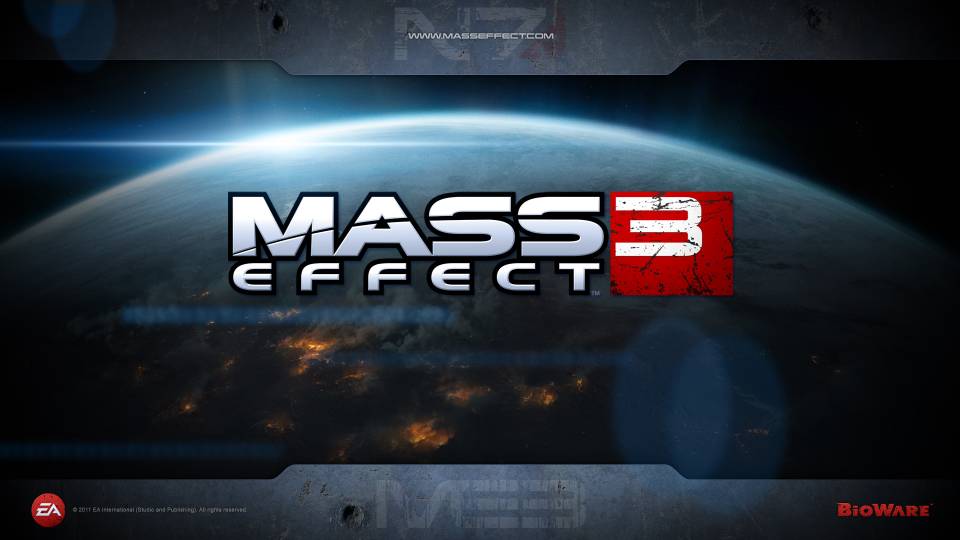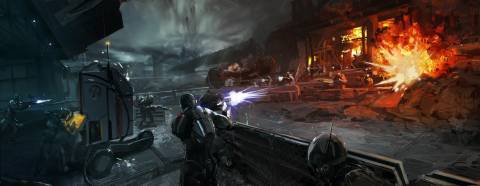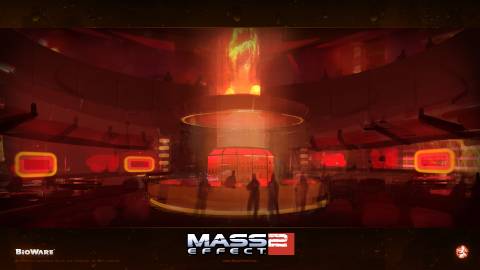Do we listen to video game scores or are they background noise
By LightForceJedi 34 Comments
Please follow me on twitter for all of my latest articles: https://twitter.com/AlMartinet
Early this year, Bioware’s Mass Effect saga came to five year run. Rest aside the ending; the series is one of the most complete trilogies in video game history. There are two aspects that Mass Effect nails perfectly. The series was first to interweave choices all the way through the third and final installment captivating fans from start to finish. However, you can’t tell a great story if you forget to create the atmosphere for your game to breath in. The music in the game really doses shape Commander Shepard with it having one of the best scores in gaming, but do people notice? Do people look at soundtracks as a whole or as background noise?
It’s often in movies and television that soundtracks are ignored and not given credit for their role in a project. In our five part series, I got a chance to talk with composers and had them recall their pervious work and asked them how they think fans look at soundtracks. Our first roundtable discussion is with the minds behind the Mass Effect score: Sascha Dikiciyan, Cris Velasco and Sam Hulick. Sascha Dikiciyan and Cris Velasco wrote music for Mass Effect 2 Kasumi’s Stolen Memory and Arrival and scored many of the key scenes like Rannoch and Sanctuary. Sam Hulick has been with the series since the very beginning and his suddle work with ambient sounds helped form the Mass Effect galaxy.

GamerLive.TV: Just to start us off, what else have you worked on besides Mass Effect?
Sascha Dikiciyan and Cris Velasco: Some of the titles we’ve scored include the God of War series, Clive Barker’s Jericho, Warhammer 40,000: Space Marine, Borderlands, TRON: Evolution and many more.
Sam Hulick: I got my start working on Maximo vs. Army of Zin, followed by a few indie titles. I also composed the orchestral score for Red Orchestra 2: Heroes of Stalingrad. I was immediately drawn to the project as soon as the developer told me they were looking for a very intense and somber score, influenced by Russian and German classical music. It was a chance to veer in a very different direction from Mass Effect. Currently I’m very excited to be working on Baldur's Gate: Enhanced Edition. I saw the mysterious baldursgate.com website earlier this year and I figured Trent Oster had to be behind it, so I sent him an email about it. He was rather mysterious in his response, but we wound up having a meeting at the Game Developer’s Conference about a week later, after which I was officially invited on board their project as composer.
GamerLive.TV: Growing up, what composers did you listen to and now influence your professional work?
Cris Velasco: I’ve always listened to (and been inspired by) John Williams. It wasn’t until my 20’s when I really started listening to orchestral composers though. Some of the most influential composers for me are Shostakovich, Prokofiev, Stravinsky, Beethoven, and Mozart. I’m also a big fan of John Powell, James Newton Howard, Danny Elfman, and Edward Shearmur.
Sascha Dikiciyan: Growing up in a classical house, the likes of Beethoven and Mozart have left their mark, however when I was 14 I really got into electronic music. After that the works of Vangelis, Depeche Mode, Kraftwerk, Devo, New Order and many others have influenced me. While I still enjoy these artists today, I also love some of the more modern electronic composers out there, Trent Reznor’s work on The Social Network, The Chemical Brothers’ work on Hanna and Massive Attack.
Sam Hulick: Early on, mostly John Williams, Danny Elfman, and Ray Lynch influenced me. At this point, I don't think I can pinpoint specific musical influences that have an active role in my work. I feel like I've reached the stage where I've discovered my own personal signature, or it could simply be that my various influences have been merged into my own style.
GamerLive.TV: Cris and Sascha, Your first experience with the Mass Effect Franchise was scoring Mass Effect 2: Kasumi's Stolen Memory, which is one of one of my favorite parts of the score because it stayed away from the Mass Effect that everyone is adjusted to hearing and gave us something new. Is it easier to work with established themes or do you prefer creative freedom when entering a project?
Cris Velasco: For myself, I prefer to work with a blank canvas. Creative freedom gives me the most satisfaction as a composer. Working with an existing theme can be fun too though. I’ve had my own themes worked on by other composers and it’s always interesting to hear a different interpretation of your own music. Usually, it’s something I never would have come up with on my own. So hopefully, if I have to work with an existing theme, the other composer feels the same way! Mass Effect was a unique situation in that we were allowed creative freedom to do our own thing, but we still worked within the confines of an established style.
Sascha Dikiciyan: While the sound of that DLC was indeed a bit different, we tried to still keep some of the familiar elements from the previous games. Coming onto an established AAA franchise like Mass Effect is never easy and while I prefer a fresh start, I think the original Mass Effect has this brilliant mix of 80’s influence meets orchestra, which we then applied again into our Mass Effect 3 score. So coming onto a new project, creative freedom is pretty much required for me to do great work. In the case of Mass Effect, we wanted to simply add to the universe that was already established.
GamerLive.TV: What was one of the biggest challenges you faced when you were creating the Mass Effect 3 soundtracks?
Sascha Dikiciyan: Well, it was a good warm-up gig for us to compose DLCs for Mass Effect 2 before we were called onto Mass Effect 3. It gave me a lot of confidence that we could pull it off. I always like to do research for the projects before I start. Like what reverb sounds best, what synth would be best for this sound etc. Luckily that was already somewhat established on the DLCs so besides having to write good music very fast, the most important aspect was to keep that Mass Effect sound while still adding our own flavor to it. That was the biggest challenge, at least for me.
Cris Velasco: As I mentioned earlier, we were given our creative freedom but obviously within the confines of the established sound. The challenge for us was to work within those boundaries and still have our own voice heard. We definitely wanted to bring something fresh to the series if possible. One of the best quotes we’ve read online is, “it sounds like Mass Effect music, but new.”

Sam Hulick: Nailing just the right feel for some of the more emotionally charged scenes can be challenging. Particularly, composing "An End, Once and For All" took a few rounds of revising some elements to get just the right feel to it. It had to be very subtle in the right spots. Too much and it would have ruined the scene.
GamerLive.TV: What's your favorite piece you worked on in Mass Effect 3?
Cris Velasco: It’s impossible for me to choose one piece. I still like the “Reaper Chase” though because of its sheer epicenes. Not just the music, but also the scene it accompanies is so much fun! I also really like the track “The Scientists”. It’s another action track, but I think there’s a nice mixture of the orchestra combined with Sascha’s electronics.
Sascha Dikiciyan: I love “The Scientists” cue. There are a few others I love that you cannot find on the soundtrack unfortunately.
Sam Hulick: It's difficult for me to pick just one, but I'd have to say the romance theme, "I Was Lost Without You," is probably my favorite. It's just a really emotional piece of music, and I think the mix of different styles (piano, orchestral, and synth) make for a particularly interesting sound.
GamerLive.TV: What's the composing process for a video game, does inspiration come from visuals only or from written word?
Sascha Dikiciyan: Well, for me most inspiration comes from the visual source material. That can be artwork, actual gameplay or cinematic. For example, For TRON: Evolution I had a ton of amazing artwork. Every piece had a certain color or mood to it. To me that color/mood translates into sound or music. It’s hard to explain but you start to get a ‘feel’ for something. For Mass Effect 3 we had not only artwork but also a detailed script and QuickTime movies of the levels themselves.
Sam Hulick: It comes from both. You have to have a pretty solid understanding of the storyline, characters and settings. Visuals serve to provide a face for these elements, and are usually a huge help for a composer trying to immerse him-or-herself in the world that the game takes place in.

Cris Velasco: It’s all about the visuals for me. Someone could describe one of the Reapers in extreme detail to me, and I’d be able to visualize it in my head and my imagination would make it seem amazing. However, it still wouldn’t get my creativity jump started like seeing a picture of them would. As soon as I saw that Mass Effect 3 trailer with the Reapers invading London, I already knew what I wanted to do with the music.
GamerLive.TV: Besides scoring a soundtrack, how much behind the scenes work (sound effects) goes into a soundtrack?
Sascha Dikiciyan: For music, I do a lot of what I like to call MSD or ‘musical sound design’. There are a lot of sounds that make up the musical soundscape of Mass Effect that you could call sound effects however they are used in a musical way. I usually do a lot of pre-production, creating a folder full of sounds before I would begin writing. However with our tight schedule for ME3, I pretty much had to do it all at the same time.
Sam Hulick: For a game like Mass Effect, quite a bit of work happens before actually jumping into composition. Picking out a synth sound palette can be challenging simply because of the way sounds are named. For orchestral works, it’s straightforward: composers see “oboe staccato” in their patch list and they know what that sounds like. But synth libraries often give more colorful and interesting names to their sounds, and while there are efforts to help categorize these sounds (and there are literally thousands upon thousands of them!) it’s still quite a task to sit down and figure out what to use and how to tweak it. Sometimes composers will actually hire other musicians or sound designers to create synth sound palettes for them because of how time-consuming it can be.
GamerLive.TV: Do you feel you get enough recognition for your work?
Cris Velasco: I actually feel that recognition for game music has taken some very positive steps forward over the years. For example, I’ve had my own music performed at numerous video game music concerts over four continents! We may not always feel the love when a new game comes out that we’ve put so much work into, but there are in fact tons of people that do appreciate what we’ve contributed to the industry.
Sascha Dikiciyan: I think there’s still this misconception that video game music is inferior to its movie counterparts. Which in a lot of ways is ironic since there is a ton of music that's at least equal in quality to movie scores, if not better. When you listen to our Space Marine soundtrack, it could easily be a movie score. I think we need to gain more recognition via award shows. The Grammys, for example, include video games in their awards but we get lumped together with other media. I think video games deserve their own category now. I mean, they have a category for Best Album Notes so why not Best Video Game Score?
Sam Hulick: For sure. There are many awards that recognize video game music, such as the Canadian Videogame Awards, the British Academy of Film and Television Arts Games Awards, G.A.N.G. Awards, the list goes on. Not all of these are what you may consider “mainstream” but video game music has gained much traction in recent years, and will continue to do so, I’m sure.
GamerLive.TV: Do you think people discount your work?
Sascha Dikiciyan: Well the real fans love what we do of course. But as composers it’s tough getting the same level of respect as rock stars. This goes back to what I said earlier. We need to have more opportunities for our work to be taken seriously. Winning a prestigious award would obviously help to get the word out. However, for me, the most important appreciation factor is the fans. They know how much work goes into a score for a video game these days and in the case of Mass Effect 3 it has been really rewarding so far.
Sam Hulick: Just as there are people who are highly enthusiastic about film scores and collect soundtracks, there are legions of gamers who really get into the music for games, buy their favorite soundtracks, collect autographs from composers, etc. So no, I’ve never really felt like my work was discounted or seen as irrelevant. In fact, quite the opposite!
Cris Velasco: Back when I first started composing for games (around 2004 or so) it was a lot different than it is now. When I told people that I was writing music for video games, they would get a sheepish look in their eyes and tell me to “hang in there” and “I’m sure something better will come around soon”. So back then, yes, our work was definitely discounted. Now though, I get a stack of emails every week from fans or other aspiring composers looking for a little help. I think that game music is making great headway and is really starting to be recognized for the legitimate art that it is.

34 Comments